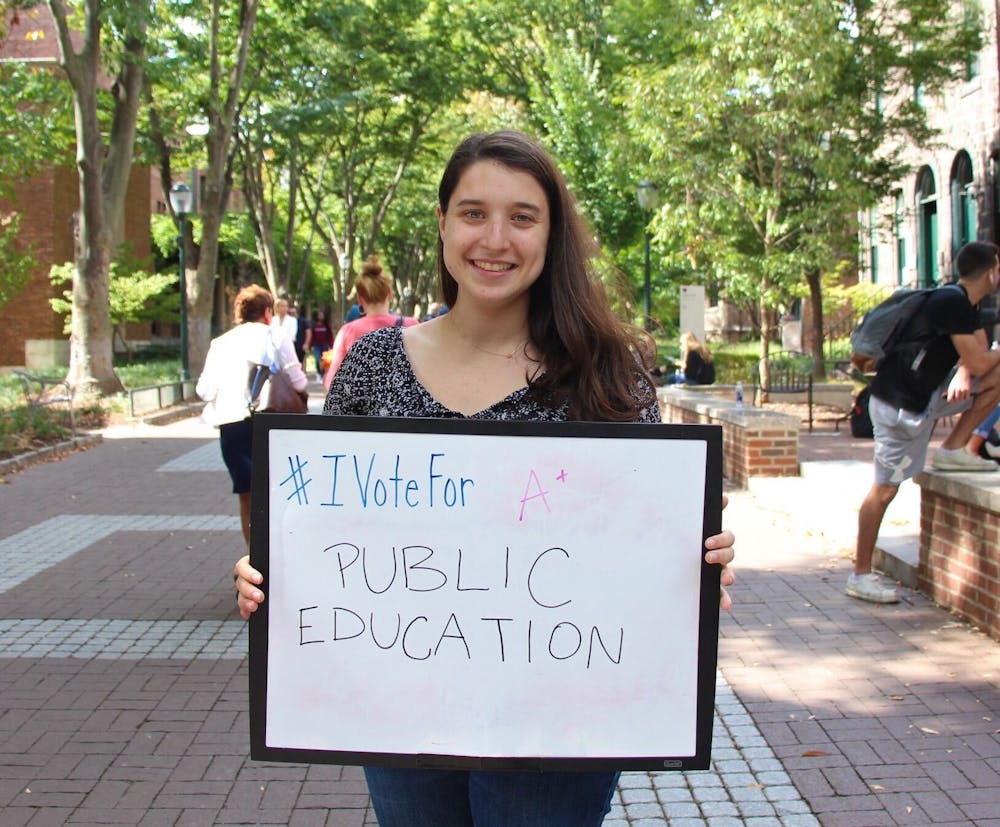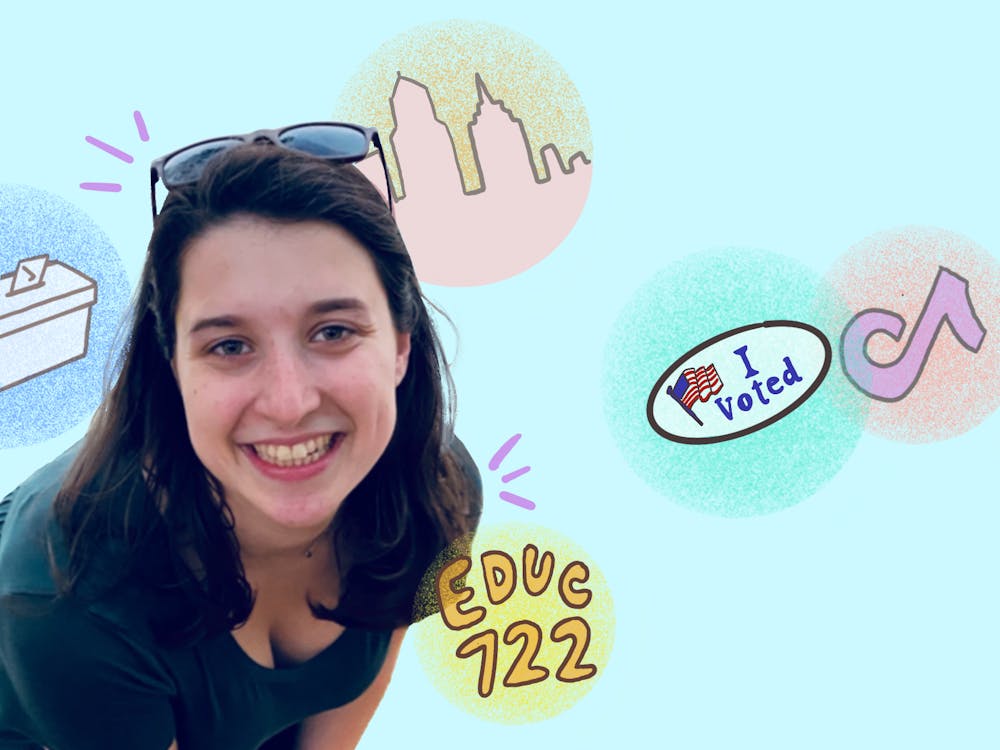It took pitching her curriculum to 17 professors for Jay Falk to get her Academically Based Community Service (ABCS) course focusing on educating high school students in civics, local governance, and voting approved.
Jay had the idea before even coming to Penn. By the time she graduated high school, she had already registered 700 students to vote. While recounting the first successful registration drive that she ran, Jay recalls it being a landmark moment for her—the first time feeling that she, however small, had made a difference. And she has worked tirelessly to ensure other young people can experience that feeling, too.
“When I got to Penn … I really cared about voter registration because it’s this unique way to have youth that don’t feel like they have power, to have power.”
Upon coming to Penn, Jay instinctively set out to create a program that would empower high school students in West Philadelphia to vote. Her idea was to recruit Penn students to run peer–to–peer voter registration drives. "Penn students are often really privileged—they vote—I’m not worried about them. Let’s make sure that students in our West Philly high schools have access to voting and power in that way," she reflects. "I sent an email."
That email connected her to the Netter Center, and the Center connected her to like–minded Karina Shah (W ‘20). The duo decided to develop an ABCS course, with the hope that their efforts would be institutionalized and continue to exist long after they graduated. In addition to peer–to–peer voter registration, the course curriculum included a classroom component, sending Penn students to a local school to teach civics in a social studies class. With the help of Rand Quinn, an Associate Professor in the School of Education, the new course "EDUC - 722: Reforming Philadelphia Schools: A Research Practicum on Community Engagement" finally came to fruition.

While her course successfully took off in spring 2020, Jay was studying in Khon Kaen, Thailand as part of a small abroad program called 'Development & Globalization' that focused on educating students on global social–political movements. While there, Jay spent more than a few nights sleeping on the floor under mosquito nets in various home stays. She reflects that not a single person she met spoke English. One week she stayed with a village of organic farmers and learned about the tensions between organic and pesticide farmers, while another week she stayed with the Radical Grandma Collective, a protest movement led by weavers selling scarves to pay for the bail of those jailed for protesting environmental injustice. Jay recounts that it was from these experiences that she found a new, global sense of urgency and a reignited belief in the power of grassroots activism.
“We stayed with students our age who had been arrested for posting on Facebook against the king.”
While still in Thailand, Jay applied for a Netter Center grant, a 5,000 dollar allotment towards a social impact project, to expand her voter registration efforts in West Philadelphia. "Organize your community first, invest in your community, see the problems in your community and solve those before telling the rest of the world what to do,” she declares.
She received the grant, and with the money, created 'Civic Engagement Summer,' which was essentially a summer version of her ABCS course, structured as a six–week internship program that actually paid high school students in West Philadelphia to participate in peer–to–peer voting registration.
The summer was a booming success. Now a priority of the Netter Center, Jay’s various programs have rapidly expanded and have garnered the name the High School Voter Project. Staffed with a team of Penn professors, undergraduates, and local high school students working year–round to facilitate voter registration drives, Jay looks ahead: “My goal is to register every single eligible student in Sayre, West Philadelphia and Robeson High. … We’re going to register dozens or hundreds of voters in the next coming weeks, but we’re also going to set ourselves up to be in these schools and have these relationships for the long term."

